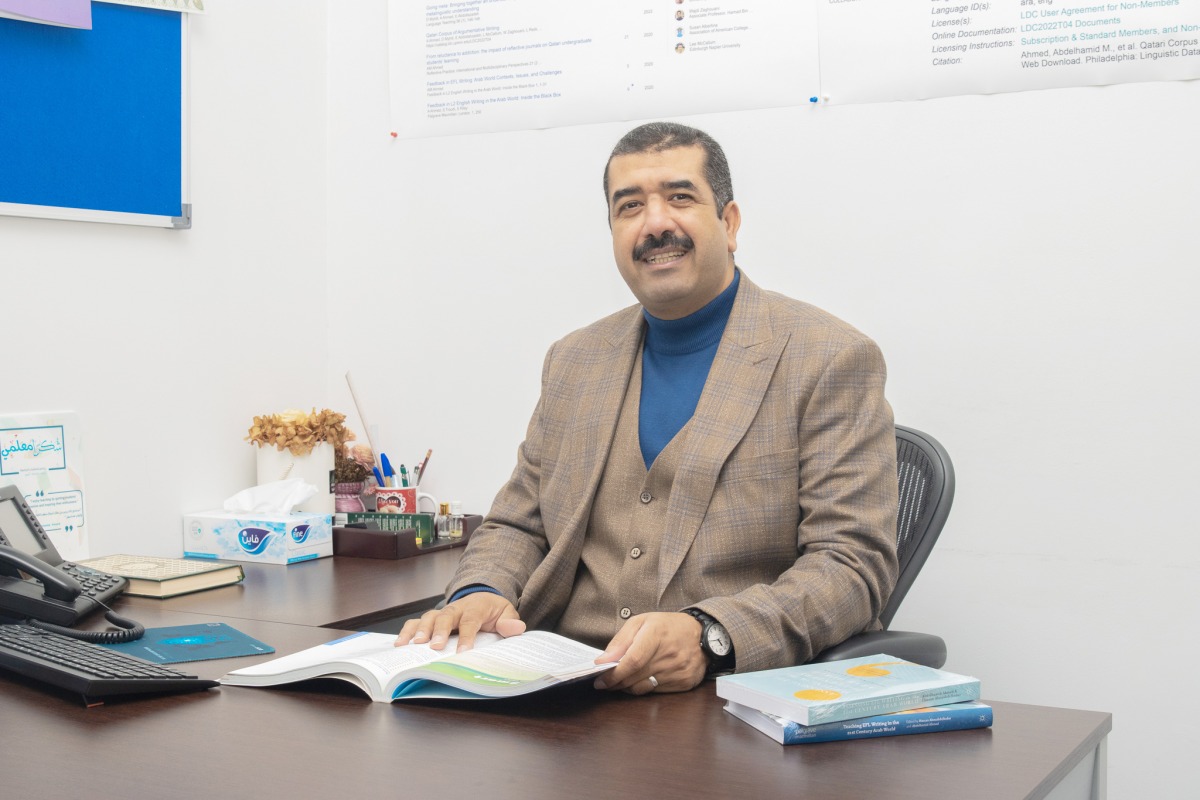Qatar University, in collaboration with the University of Exeter (UoE) in the UK and Hamad Bin Khalifa University (HBKU) in Qatar, recently launched a groundbreaking research project known as the Qatari Corpus of Argumentative Writing. This initiative, part of Qatar’s National Vision 2030, focuses on human development and aims to analyze the argumentative writing skills of Qatari university students in both their first language (Arabic) and second language (English). The project, funded by the Qatar National Research Fund (QNRF) from 2019 to 2022, has resulted in a comprehensive bilingual writing corpus that examines students’ use of metadiscourse and voice markers in their writing.
The primary objectives of the Qatari Corpus of Argumentative Writing were to build a comprehensive corpus and analyze students’ use of metadiscourse and voice markers in both Arabic and English. Metadiscourse and voice markers are linguistic tools that writers use to express their thoughts, opinions, and engage readers. By studying texts from various academic disciplines, the corpus provides valuable insights into the bilingual writing process and language patterns. This resource is beneficial for researchers, educators, and linguists working in bilingual environments, providing valuable data for teaching methods and cross-linguistic studies.
Dr. Abdelhamid Ahmed, Assistant Professor in English Language Education at Qatar University, led the project, collaborating with experts from the University of Exeter (UoE) in the UK and HBKU in Qatar. The expert team included Prof. Debra Myhill, Dr. Esmaeel Abdollahzadeh, and Dr. Wajdi Zaghouani, who contributed their expertise in language education and digital humanities to the project. The Qatari Corpus of Argumentative Writing comprises approximately 200,000 tokens of argumentative writing by Qatari university students in both Arabic and English, providing a unique bilingual data set for analysis.
The corpus contains a total of 390 argumentative essays (195 in Arabic and 195 in English) written by a group of Qatari university students, including 159 females and 36 males, on a variety of topics. The students, native Arabic speakers proficient in English as a second language, offer valuable insights into the bilingual writing process and their use of rhetorical devices in both languages. The Qatari Corpus of Argumentative Writing serves as a valuable resource for researchers, educators, and linguists interested in exploring bilingual writing practices and language use among university students in Qatar.
In conclusion, the Qatari Corpus of Argumentative Writing is a pioneering research project that highlights the importance of developing students’ argumentative writing skills in both Arabic and English. This initiative, part of Qatar’s National Vision 2030, aims to improve human development and provide valuable insights into the bilingual writing process. Led by Dr. Abdelhamid Ahmed and supported by experts from the University of Exeter (UoE) and HBKU, the project has resulted in a comprehensive writing corpus that will benefit educators, researchers, and linguists working in bilingual environments. The corpus provides a unique data set for analyzing students’ use of metadiscourse and voice markers in their writing, shedding light on language patterns and rhetorical devices used by Qatari university students in their academic writing.











